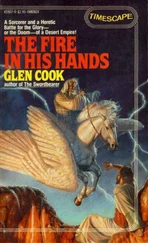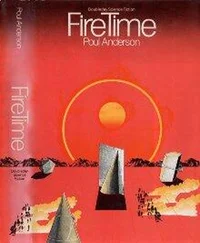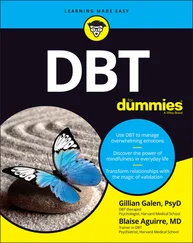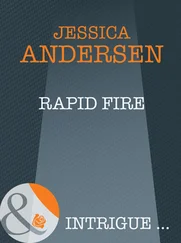Ben shook his head. “Honestly, I think everything just piled up on him at that instant. Maanik, post-traumatic stress from nearly having been killed, and ratcheted-up expectations from both sides. Full disclosure—he’s had anxiety attacks in private now and then. It’s a freakin’ pressure cooker in there. And it got worse when he left. The Pakistani delegation basically lost it, started trumpeting that this was a ‘diplomatic illness’ for nefarious purposes.”
“Maybe that was just posturing,” she offered, attempting to calm Ben from his own anxiety.
He shook his head. “One radical openly theorized that the ambassador was buying time for India to move its civilians out of major metropolitan areas in preparation for a strike. Meanwhile, most of the Indian delegation also flipped out. They think the ambassador’s toying with them in some way, and they weren’t really sure he was on their side to begin with.”
“Which he isn’t. He’s on a third side.”
“Huh?”
“He’s on the side of compromise,” Caitlin said.
“Oh, right. Anyway, he was calmer after his break. I know he prays at times of stress, and maybe that’s what he needed. But when the talks started again it was like we’d been set back three days’ worth of negotiating.” Ben shook his head and drummed his fingers nervously on the table. “Caitlin, I’m afraid they might really do it this time. I think their atomic trigger fingers are finally overwhelming the instinct for self-preservation.”
Caitlin put a hand on his shoulder and breathed deeply. For a moment they sat in silence. Then Ben gathered himself and flipped open his tablet.
“So, I’m thinking we need some good news about Maanik for the ambassador just as fast as we can find some.”
“Okay… ,” Caitlin said, trying to catch up with his still-manic thought process, “you have something in mind?”
Ben opened the screenshots Caitlin had sent him. “I think you’re right about the arm movements. If this is a coherent language, they’re part of it. They may serve the same function as the diacritical marks in written Hebrew. Some of those marks change the letters, words; some serve as punctuation; some represent abstract concepts like numbers.”
“Wait, are you saying what I think you’re saying?”
“Yep.”
“When did you study the video?” she asked.
“Let’s just say it wouldn’t let me sleep.”
“No wonder you look like crap.”
“You look good too.”
They smiled at each other.
“Okay, I’m with you,” she said. “But Hebrew diacritical marks are simple. Lines, really.”
“Right. I’m not sure what purpose these gestures serve, yet. They might be emphasis but I kind of doubt it; they’re elaborate.”
“Could they be parts of words, like prefixes and suffixes?”
“Maybe, maybe, but look here.” Ben jumped to a screen grab Caitlin hadn’t made. He had caught a moment when Maanik was lying on the floor, her mouth open to speak, her hands resting calmly beside her. “This was when she first dropped those unfamiliar sounds into English. Her arms were still. The gestures only started as she sped up.” He switched to one of Caitlin’s screen grabs, where Maanik was still lying on the floor but her hands were in the air. Her left hand was angled away from her body; her right arm was starting to arc diagonally across her torso. “See? They could signify something we would ordinarily express through the subtleties of body language.”
“We?” Caitlin said. “That would suggest there’s a ‘them’ in this equation.”
“I know, that’s crazy.” He rubbed below his ear. “But these expressions of hers have patterns and they’re not like any I’ve ever seen. Maanik’s not just riffing, Cai. What’s more, it’s going to be tough even separating discrete words from her stream of speech, since she barely stopped to take breaths. It’s like when we hear a foreign language that seems to be a wild, racing babble to us but not to the speakers.”
“And you just suggested that those speakers are… what?”
“Cai, I really have no clue. Not from what little I’ve seen and heard here. Maybe it’s some kind of schizophasia or glossolalia—”
“But people with schizophasia tend to use recognizable words, and Mrs. Pawar would have picked up on any kind of religious chant.”
“I’m not saying it has to be those, exactly, but something like them. I just don’t know. This could be terra incognita. I’ve got a program that should help with transcription. I’ll get to it tonight, let you know what I find out.”
He shut his tablet, stood, and before she could say anything, he leaned in and hugged her, briefly but close. She had wondered why he had brought her over here when he could have said everything on a phone call from this same secure room. This was why. The hug. She tried to imagine going home to an empty apartment every day after hours of frustrating peace talks. The sudden sense of loneliness overwhelmed her.
“You know, they’re lucky to have you,” she said. “You may think being a translator makes you invisible, but you’re fighting to stay cool and grounded and I know everyone in the room is benefiting from that, whether they’re conscious of it or not. You’re doing a great job.”
He let go before either of them felt awkward and guided her from the room without further conversation.
Before leaving, Caitlin detoured across the newly renovated lobby to an exhibit: Photographs of Hiroshima and Nagasaki, 1945–1946 . They were, in the oldest sense of the word, god-awful. She felt tears rise, looking at the dead or screaming people, the swaths of burn blisters, whole torsos stripped of skin, ears burned away, blinded eyes. And then there were the famous photos of human shadows on walls, caught in the atomic flash.
How, how, how , Caitlin wondered, how can anyone see these and want to repeat history? These images weren’t just about nuclear bombs. They were about the unthinkable, lingering pain and horror caused by every war in every era. In them was an implicit warning that the next big conflagration would be exponentially worse. Yet here we are, rocketing toward it.
Her blurred vision was caught by one particular image, a young girl curled over her dead baby brother. Caitlin was surprised by how much the girl looked like Maanik. Caitlin wiped her eyes. A sign warned that this was a place for solemn meditation, nothing else. She checked that the security guard was facing away, then snapped a picture of the photograph with her phone.
As she left the lobby, more than anything in the world she wanted to put her arms around her son. But he was at the second birthday party and when she sent him a text— I love you, kiddo —there was no reply. Caitlin forced herself to return to her office and attack her backlog of paperwork instead of joining him at the party.
Four hours later, there he was, on a massive sugar high, bright-eyed and huggable.
Caitlin took him to a Ping-Pong club as a special treat for no particular reason—but after only half an hour, she received a phone call from the Pawars. They were in her neighborhood and were hoping to visit her, would that be all right?
Even as she was assenting, Jacob’s hands were already rising to his hips in defiance. No doubt he recognized her apologetic shoulders and the sidelong glance that always signaled a change in plans.
“One more game,” he signed when she ended the call.
She shook her head and smiled. “So you’ll play as slowly as you can?”
He couldn’t help snickering; she’d read him right.
“Fifteen minutes,” she said. “And I’m sorry. I wouldn’t cut us off if I didn’t think it was important.”
Читать дальше












